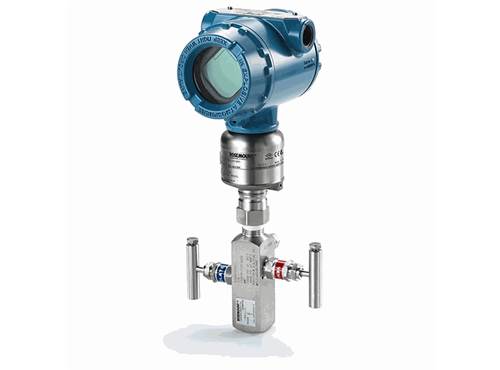Introduction
Accurate pressure measurement is the backbone of safe and efficient industrial operations. Whether it’s oil & gas, power generation, food processing, or water treatment, the ability to monitor and control pressure in real time ensures system safety, product quality, and process optimization. A minor fluctuation in pressure can result in costly downtime, product loss, or even hazardous conditions.
This is where pressure transmitters come into play. These smart devices not only measure pressure but also convert it into electrical signals that integrate with control systems, enabling operators to make informed decisions. At The Transmitter Shop (TTS), we specialize in providing new, surplus, and refurbished pressure transmitters from trusted global brands, helping industries achieve cost-effective and dependable process monitoring.
In this blog, we’ll dive deep into the working, benefits, applications, and selection of pressure transmitters, and explain why choosing the right supplier makes all the difference.
What is a Pressure Transmitter?
A pressure transmitter is an instrument designed to measure the pressure of a fluid (liquid, gas, or steam) and transmit the data as an electrical signal to monitoring or control systems. Unlike manual gauges that only display readings locally, pressure transmitters provide continuous and accurate measurements that can be integrated into automated systems.
Key Types of Pressure Transmitters
Gauge Pressure Transmitters
Measure pressure relative to atmospheric pressure.
Widely used in applications like pump monitoring and pipeline measurement.
Absolute Pressure Transmitters
Measure pressure compared to a perfect vacuum.
Ideal for processes requiring precise reference pressure, such as vacuum systems.
Differential Pressure Transmitters
Measure the difference between two pressure points.
Used in flow measurement, filter monitoring, and level measurement in pressurized tanks.
By understanding these variations, industries can choose the right transmitter for their specific process requirements.
How Do Pressure Transmitters Work?
At the core of a pressure transmitter is a sensor element that detects changes in pressure. This sensor may use piezoelectric, capacitive, or resistive technologies to measure pressure. The detected pressure is then converted into an analog or digital electrical signal.
This signal is transmitted to Programmable Logic Controllers (PLCs), Distributed Control Systems (DCS), or Supervisory Control and Data Acquisition (SCADA) systems. The integration allows operators to monitor real-time data, set alarms, and automate corrective actions when pressure levels deviate from safe operating ranges.
Benefits of Pressure Transmitters
1. Accuracy and Precision
Pressure transmitters provide highly accurate measurements, ensuring consistent process performance and reducing the risk of costly errors.
2. Safety and Reliability
By constantly monitoring pressure, transmitters help prevent dangerous overpressure conditions, protecting both personnel and equipment.
3. Operational Efficiency
Accurate pressure data enables better process control, leading to optimized resource usage, reduced waste, and energy efficiency.
4. Durability in Harsh Environments
Industrial processes often involve extreme temperatures, pressures, or corrosive fluids. Pressure transmitters are designed to withstand these conditions, ensuring long service life.
5. Cost Savings with Refurbished Models
Refurbished pressure transmitters from TTS provide the same reliability as new units but at significantly reduced costs, making them ideal for budget-conscious industries.
Industrial Applications of Pressure Transmitters
Oil & Gas Industry
Pressure transmitters are used to:
Monitor wellhead pressures in drilling operations.
Measure pipeline integrity to avoid leaks and ruptures.
Track storage tank pressures for safe inventory management.
Chemical & Petrochemical Plants
Ensure reactors, storage tanks, and distillation units operate within safe limits.
Help maintain precise chemical mixing ratios.
Water & Wastewater Treatment
Regulate pumps and filtration systems.
Monitor pressure in pipelines for consistent water distribution.
Food & Beverage Industry
Maintain sanitary processes while ensuring product consistency.
Monitor pressure in pasteurization and carbonation systems.
Power Generation Plants
Track boiler pressure, steam turbines, and cooling systems.
Prevent dangerous overpressure scenarios in energy production.
Challenges in Pressure Measurement and How Transmitters Solve Them
Fluctuating Operating Conditions: Pressure transmitters are engineered with compensation technology to ensure accuracy despite temperature or flow variations.
Corrosive or Aggressive Media: Specialized materials like stainless steel or ceramic diaphragms extend transmitter durability.
High Vibration or Harsh Environments: Industrial-grade transmitters are shock-resistant and reliable even under tough conditions.
Downtime Risks: Refurbished transmitters provide a quick and cost-effective replacement solution when equipment fails unexpectedly.
How to Choose the Right Pressure Transmitter
When selecting a pressure transmitter, consider the following factors:
Type of Pressure Measurement – Gauge, absolute, or differential.
Pressure Range – Ensure the transmitter can handle the operating pressure range.
Output Signal Type – Analog (4–20mA) or digital (HART, Profibus, etc.).
Process Conditions – Temperature, corrosiveness, and vibration levels.
Installation Environment – Indoor, outdoor, hazardous, or sanitary settings.
Budget and Lifecycle Needs – Whether a new or refurbished transmitter is more suitable.
Why Choose The Transmitter Shop (TTS)?
At The Transmitter Shop, we go beyond just selling equipment—we provide solutions. With decades of industry expertise, we are a trusted source for both new and refurbished transmitters.
Extensive Inventory – Wide range of new, surplus, and refurbished transmitters.
Trusted Brands – Rosemount, Yokogawa, Honeywell, ABB, and more.
Cost-Effective Options – Affordable refurbished transmitters with proven performance.
Quality Testing – Every unit is tested to ensure reliability and accuracy.
Fast Turnaround – Minimize downtime with prompt delivery and support.
By partnering with TTS, industries gain access to reliable instruments and expert guidance for selecting the right solution.
FAQs About Pressure Transmitters
Q1. What’s the difference between a pressure gauge and a pressure transmitter?
A pressure gauge only displays local readings, while a transmitter converts measurements into electrical signals for remote monitoring and automation.
Q2. Are refurbished pressure transmitters reliable?
Yes, at TTS, refurbished transmitters undergo thorough testing to ensure accuracy and performance, making them as dependable as new models.
Q3. How often should pressure transmitters be calibrated?
Calibration frequency depends on application, but most industries schedule calibration annually or as per process requirements.
Q4. Which industries benefit most from pressure transmitters?
They are widely used in oil & gas, chemicals, water treatment, food & beverage, and power generation.
Q5. How do I choose between gauge, absolute, and differential pressure transmitters?
It depends on your application—gauge for standard pressure, absolute for vacuum-based processes, and differential for flow or level measurements.
Conclusion
Pressure transmitters are indispensable for industries that demand accuracy, safety, and efficiency. From ensuring product consistency in food processing to monitoring critical pipelines in oil & gas, these instruments form the foundation of reliable process control.
At The Transmitter Shop, we provide pressure transmitters that combine durability, performance, and affordability. With our extensive inventory of new and refurbished transmitters, you can find the right solution for your needs—delivered quickly and tested for reliability.
Explore our range of pressure transmitters today and optimize your operations with trusted instrumentation.



